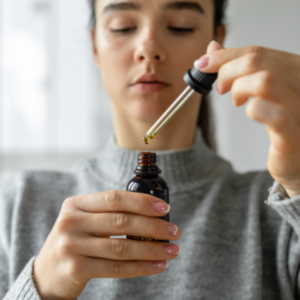Did you know that 1 in 3 adults does not get enough sleep at night? There is a lot of information available on how to get more sleep in, however, it is also very vital to look at how improving your quality of sleep has to do with your overall health. Sometimes, getting enough hours of sleep is not as important as getting in enough high-quality hours of sleep.
In this article, we will be looking at what is the circadian rhythm, the difference between quality and quantity as well as some tips and tricks on how to improve your sleep overall.
What is the circadian rhythm?
A circadian rhythm, or circadian cycle, is a natural and internal process that regulates your sleep to wake cycle. This repeats roughly every 24 hours and can be easily disrupted and/or manipulated. The circadian cycle can refer to any process that originates within an organism and responds to the environment.
Having a solid routine is a great way to stabilise your cycle. If you go to bed at different times each night, it will disrupt the natural tick of your internal clock. However, maintaining a routine is not all it takes. There are other things you can do to promote a well functioning rhythm. Here are a few suggestions:
- Exercise for at least 25 minutes a day.
- Avoid drinks that contain alcohol or caffeine in the evenings.
- Limit screen time during the last half of your day.
- Avoid day-time naps.
- Get up earlier than you do naturally, which means going to bed at a reasonable time.
- Open your blinds after waking up and experience as much sun in the morning as possible.
- Develop a realistic night-time routine.
These are just a few things you can do to make your circadian cycle work for you, not against you.
Quality vs quantity
Sleeping well every night is crucial for brain health. You need to be experiencing high quality sleep in order to show up and be the best version of yourself. Nighttime is when a lot of restoring functions activate, allowing us to wake up feeling fresh and prepared for the day ahead. One of the many ‘secrets’ to longevity is sleep!
Have you ever got 10 hours of sleep that left you feeling more drained than rested while a different night of 7 hours of sleep left you feeling energised? That is because that 10 hours of sleep you got was likely very poor quality while the 7-hour sleep was of high quality. In some cases, less is more!
It is very helpful to get in touch with your circadian rhythm so you can optimize your sleep schedule.
How to improve your quality of sleep
While I made a short list of things you can do to improve your circadian rhythm, there are also a handful of other simple things that you can do to improve sleep quality in general. Here is a breakdown of a few things to help you sleep better.
Winding down/getting started
It is super important to develop some kind of routine for both the mornings and the evenings. I mentioned above that this is critical for optimizing your circadian rhythm. Doing so allows you to get your body in a natural and healthy wake to the sleep cycle. Making sure that you are relaxed hours before bed is also a great way to ensure you experience all four cycles of sleep without interruption.
Avoiding a restless sleep starts with a relaxing night-time routine. Take a look at how you spend your last few waking hours right now and you will see it is a collection of habits. Simply exclude any habits that are not offering you relaxation and replace them with habits that will help you wind down without fail, even at the end of a difficult day.
Cannabidiol

Introducing Cannabidiol (CBD) into your night-time routine can be a huge game-changer! CBD is a non-psychoactive compound found in the hemp and cannabis plant that promotes relaxation in the mind and body. One of the most well-known benefits of CBD is that it improves sleep.
This compound reacts with receptors in the body, allowing us to receive holistic benefits! Additionally, it decreases pain and inflammation in the body, which can be a lifesaver for those who suffer from poor sleep due to pain.
Meditation

Relaxing both the mind and body make it easier to quiet distracting thoughts that keep your mind buzzing. Multiple studies have found that meditation can help reduce cortisol, which is a hormone associated with stress.
Making sure that you are meditating regularly will give you the best results. This practice also increases natural melatonin levels, helping you enjoy more restful slumber.
Herbal remedies

Herbs are a low-risk alternative to relaxation. With the herbal market expanding every day, relaxing herbs are very accessible and often affordable, too! There are tons of herbal teas, essential oils, tinctures and more waiting for you to discover them.
Optimizing your diet, lifestyle, and supplementation is a game-changer for those on the path to quality sleep. I can suggest trying to incorporate products that contain lavender, chamomile, valerian root and passionflower!
Final Thoughts
I wanted to close this off by saying that there is not 1 single remedy that will save an insomniac from their long nights. However, I truly believe that multiple methods can have a collectively positive effect on your sleep quality. Experiment and try new things and never underestimate the power of a plant or a practice!
Good luck and happy snoozing!





